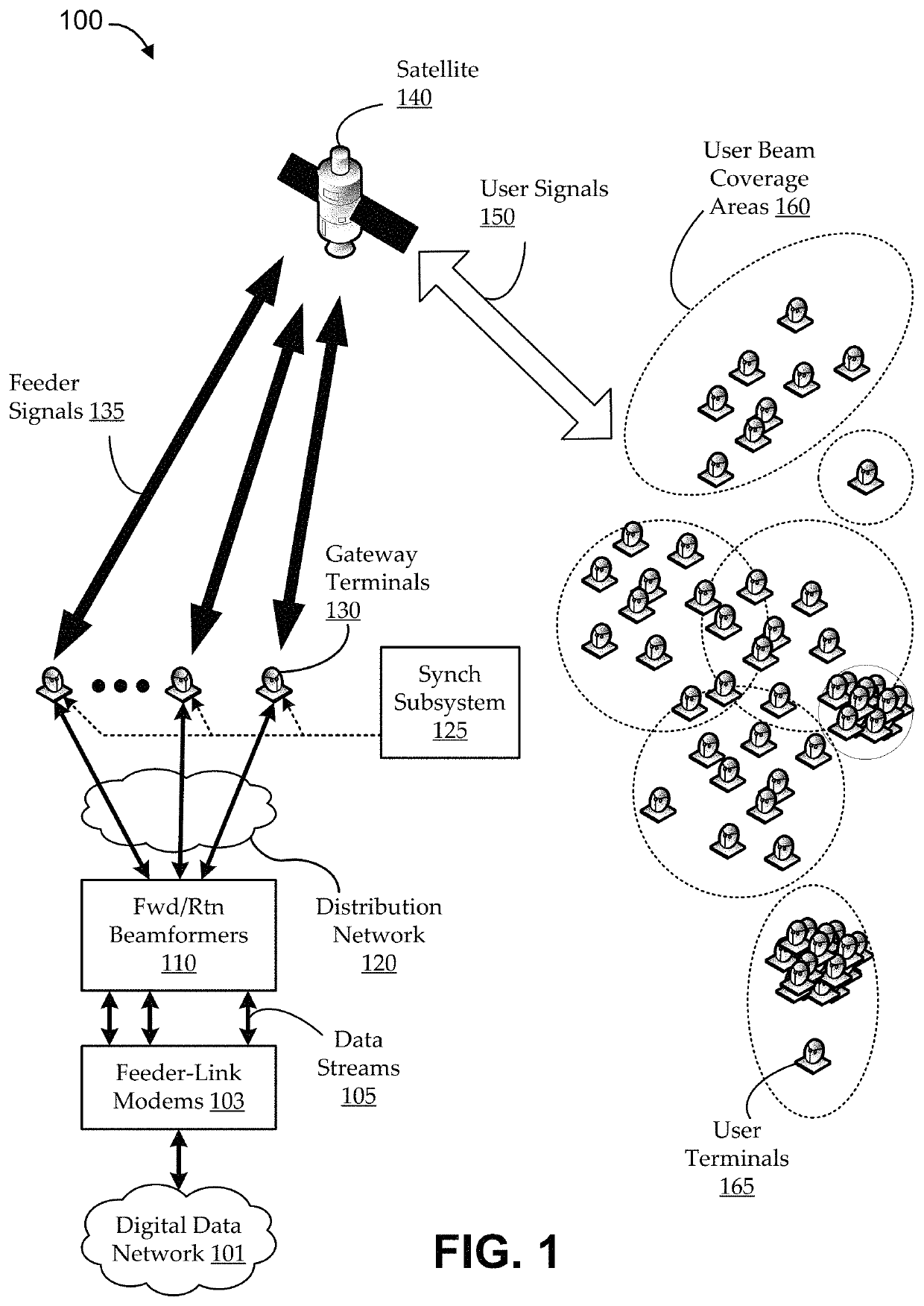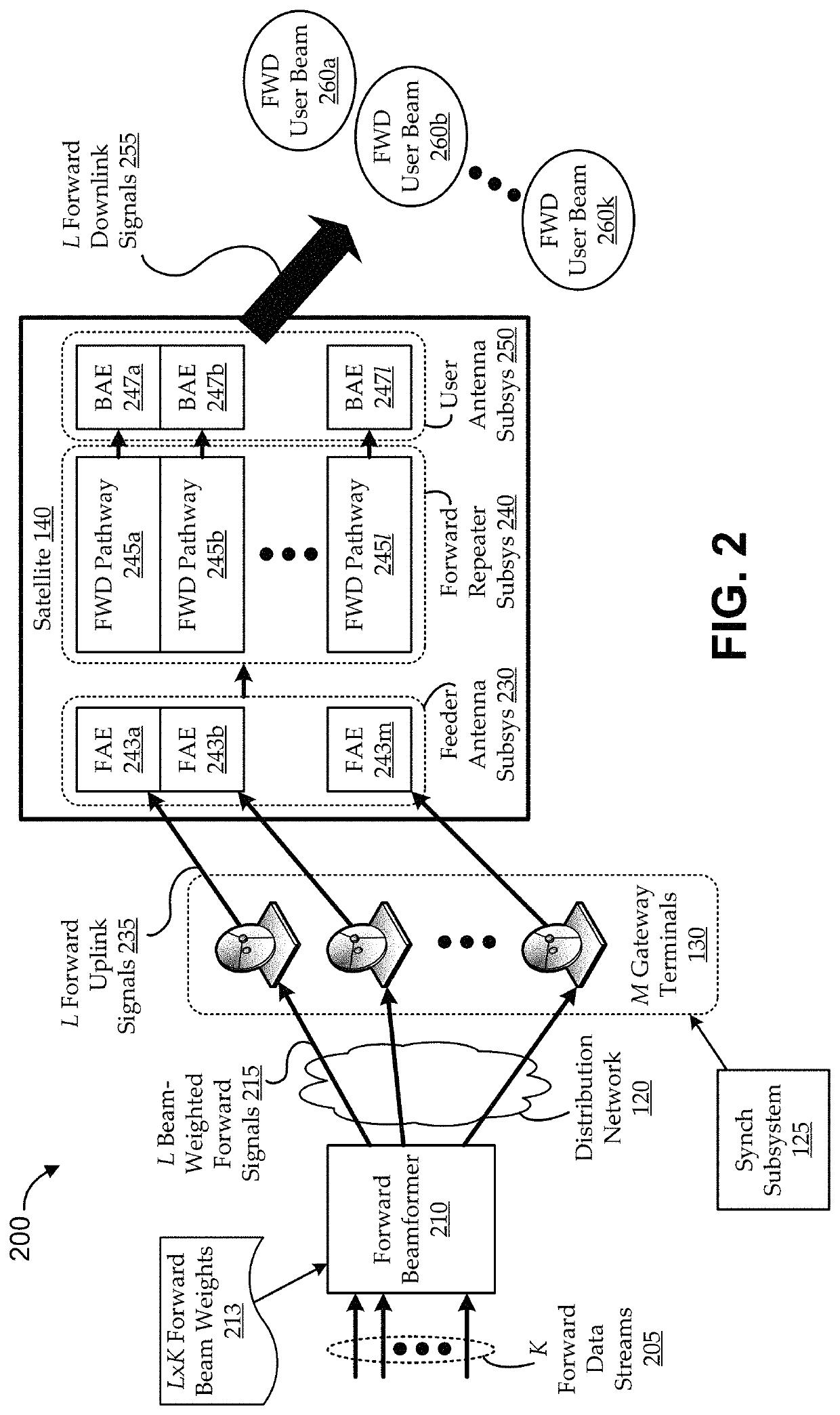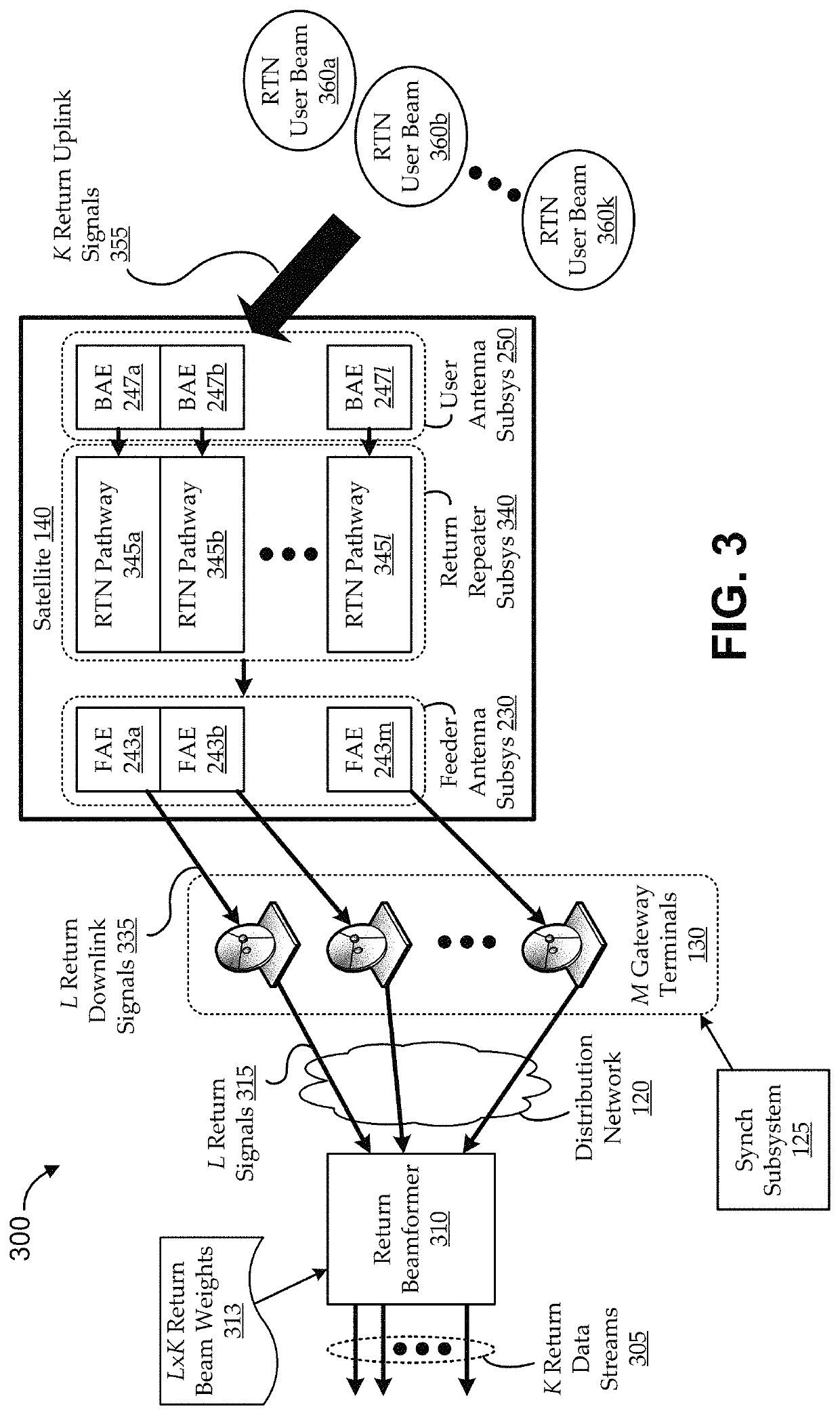Ground-based beamformed communications using mutually synchronized spatially multiplexed feeder links
a feeder link and mutually synchronized technology, applied in diversity/multi-antenna systems, site diversity, high-level techniques, etc., can solve the problems of increasing power, disproportionately small impact of capacity, and various limitations of approaches, so as to increase the capacity of the communications system, reduce the number of gateways, and increase the frequency reuse
- Summary
- Abstract
- Description
- Claims
- Application Information
AI Technical Summary
Benefits of technology
Problems solved by technology
Method used
Image
Examples
Embodiment Construction
[0023]In the following description, numerous specific details are set forth to provide a thorough understanding of the present invention. However, one having ordinary skill in the art should recognize that the invention can be practiced without these specific details. In some instances, circuits, structures, and techniques have not been shown in detail to avoid obscuring the present invention.
[0024]Embodiments described herein include novel techniques for providing ground-based beamforming with mutually synchronized spatially multiplexed gateways in a wireless communications system (referred to herein as mutually synchronized spatially multiplexed feeder links, or MSSMFL). Some such techniques include mutually phase-synchronizing and beam-weighting spatially multiplexed feeder-link signals in the ground segment of the communications system. For example, in the forward direction, focused feeder beams can be used to receive the mutually phase-synchronized and beam-weighted, spatially ...
PUM
 Login to view more
Login to view more Abstract
Description
Claims
Application Information
 Login to view more
Login to view more - R&D Engineer
- R&D Manager
- IP Professional
- Industry Leading Data Capabilities
- Powerful AI technology
- Patent DNA Extraction
Browse by: Latest US Patents, China's latest patents, Technical Efficacy Thesaurus, Application Domain, Technology Topic.
© 2024 PatSnap. All rights reserved.Legal|Privacy policy|Modern Slavery Act Transparency Statement|Sitemap



